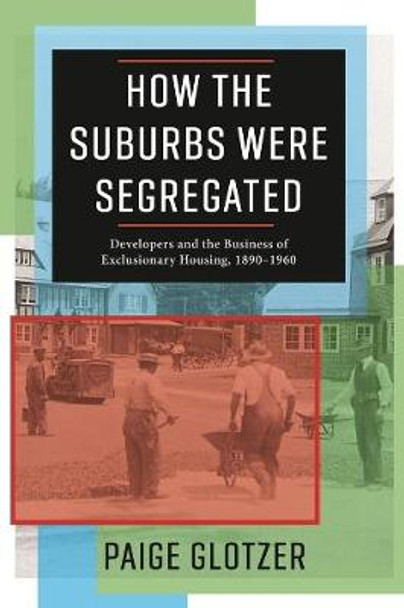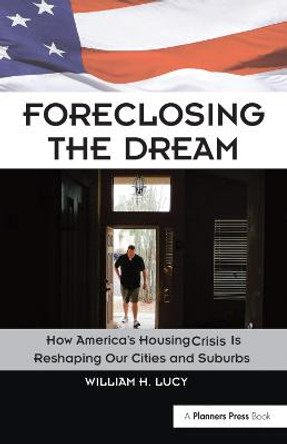Description
Glotzer charts how the real estate industry shaped residential segregation, from the emergence of large-scale suburban development in the 1890s to the postwar housing boom. Focusing on the Roland Park Company as it developed Baltimore's wealthiest, whitest neighborhoods, she follows the money that financed early segregated suburbs, including the role of transnational capital, mostly British, in the U.S. housing market. She also scrutinizes the business practices of real estate developers, from vetting homebuyers to negotiating with municipal governments for services. She examines how they sold the idea of the suburbs to consumers and analyzes their influence in shaping local and federal housing policies. Glotzer then details how Baltimore's experience informed the creation of a national real estate industry with professional organizations that lobbied for planned segregated suburbs. How the Suburbs Were Segregated sheds new light on the power of real estate developers in shaping the origins and mechanisms of a housing market in which racial exclusion and profit are still inextricably intertwined.
About the Author
Paige Glotzer is assistant professor and John W. and Jeanne M. Rowe Chair in the History of American Politics, Institutions, and Political Economy at the University of Wisconsin-Madison.
Reviews
Paige Glotzer's absorbing, vividly narrated study is a major contribution to the histories of capitalism and of American cities. She shows residential segregation's roots in longer histories of race and empire, flows of global capital, and the actions of powerful real estate developers long before the era of mass suburbanization. An essential text for understanding and grappling with the inequalities embedded within today's metropolitan landscapes. -- Margaret O'Mara, author of The Code: Silicon Valley and the Remaking of America
This book is a remarkable achievement. Glotzer tells an eye-opening story about how real estate developers shaped a racially segregated Baltimore-and through their influence and example, the larger United States. By following the paper trail, we learn that racially prejudiced homeowners and government policymakers were not solely to blame, but rather were operating with a rulebook written by capitalist real estate interests who tied profits to racial exclusion for more than a century. -- Lizabeth Cohen, author of Saving America's Cities: Ed Logue and the Struggle to Renew Urban America in the Suburban Age
In How the Suburbs Were Segregated, Glotzer offers a fresh and original history of suburban real estate development. Uncovering land ownership patterns and financing strategies in north Baltimore since the early nineteenth century, Glotzer tells the story of racial exclusion and residential segregation as it has never been told. -- Alison Isenberg, author of Designing San Francisco: Art, Land, and Urban Renewal in the City by the Bay
Glotzer tackles a complicated subject with nuance and an attention to detail that is remarkable. While there are many highly acclaimed books on the history of housing segregation and racial exclusion in suburbia, none of these have approached the topic from the perspective of developers and capital investors, much less followed the money, in the way Glotzer has. -- Andrew W. Kahrl, author of The Land Was Ours: How Black Beaches Became White Wealth in the Coastal South
Awards
Winner of Kenneth Jackson Award Best Book in North American Urban History, Urban History Association 2021 and Lewis Mumford Prize for Best Book, Society for American City and Regional Planning History 2021. Commended for IPHS First Book Prize, International Planning History Society 2022.
Book Information
ISBN 9780231179997
Author Paige Glotzer
Format Paperback
Page Count 320
Imprint Columbia University Press
Publisher Columbia University Press





